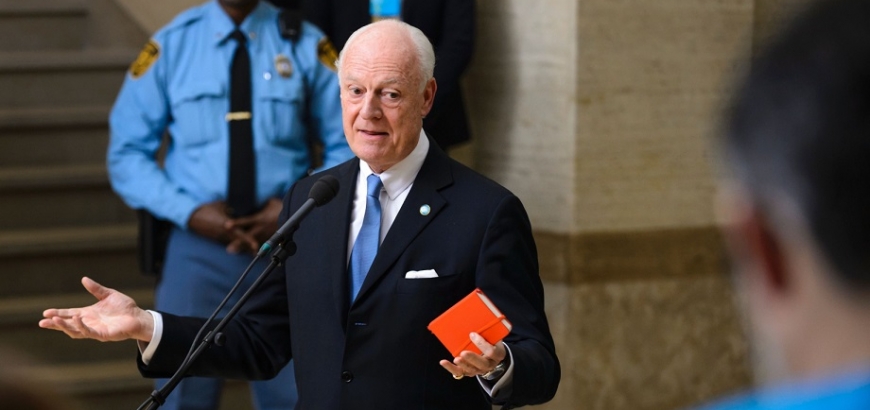On Thursday, the United Nations Special Envoy to Syria, Staffan de Mistura, announced that the latest round of negotiations in Astana had failed, saying that they did not achieve any tangible progress in forming a constitutional committee.
This came in a statement issued by the UN envoy’s office, in which it said that Turkey and Iran failed to make progress in forming a constitutional committee, adding that, “Special Envoy Mistura deeply regrets that there was no tangible progress in overcoming the ten-month stalemate on the composition of the constitutional committee.”
In a statement, Mistura said that this was the last time a meeting would be held in Astana in 2018, and “sadly for the Syrian people, it has been a missed opportunity to accelerate the establishment of a credible, balanced and inclusive, Syrian-owned, Syrian-led, UN-facilitated constitutional committee.”
On Thursday, the meetings closed the 11th round of Astana talks, which lasted two days in the Kazakh capital, and aimed to discuss a ceasefire in Idleb, forming a constitutional committee, and the release of prisoners.
For his part the head of the Syrian opposition delegation to Astana, Ahmed Taameh, said that, “It is not clear when the constitutional committee will be formed or when it will begin its work.” He expressed his hope that it will be “soon.”
Ayman al-Asmi, the spokesman for the opposition delegation, said that Russia had supported the regime as it imposed its control over Homs, eastern Ghouta and Daraa, and that the regime would not release the prisoners that it had agreed to release. He said that the people living in the areas, which the regime had taken from the opposition, had lost their papers and documentation, which had deprived them of their rights as citizens.
The head of the High Negotiations Committee, Nasr al-Hariri, recently said that the regime had placed barriers, by proposing five conditions to form the council.
He said that the regime had made it a condition that they have a majority on the constitutional committee and the right to veto, and that it holds the presidency. The regime also made it a condition that some constitutional items be amended rather than writing a new constitution. The fifth condition, the most important according to Hariri, was that the regime does not want any UN role, nor for the process to be monitored in accordance with the Geneva decisions.
This article was translated and edited by The Syrian Observer. Responsibility for the information and views set out in this article lies entirely with the author.


